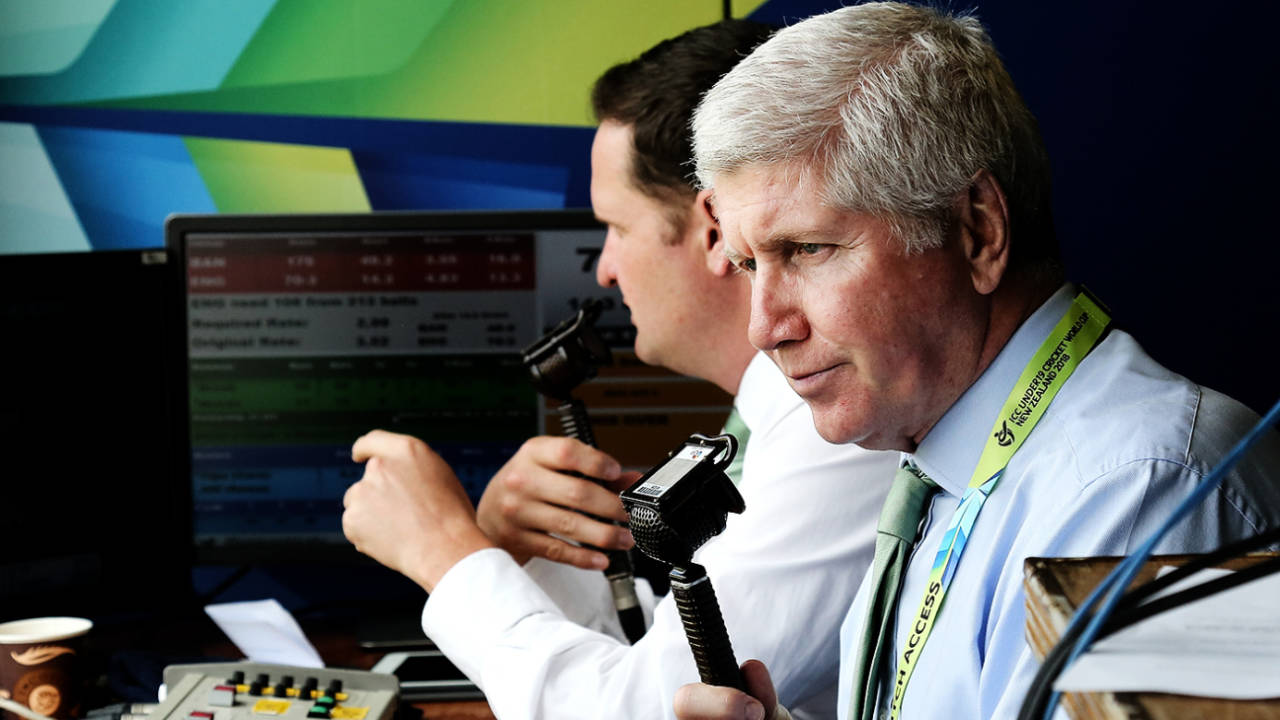There is an essential decency about
Alan Wilkins that makes him the popular broadcaster he is; but it is this same decency that works against him as an author. If his autobiography is any guide, he keeps his secrets well. Four decades in cricket, first as player and then as broadcaster, make him privy to stories and impressions involving some of the greatest players over many generations. Yet, he is not telling. For the book, like the man, is all decency and good intentions, humour and humility.
Traditionally, players' memoirs are distinctive. Those by Australians tend to be earthy tell-alls, with a high percentage of the stories and views in them appearing in public for the first time. Indians play it safe, the anecdotes shorn of malice, the events shorn of personal insights. England players lean towards modesty, not rocking the boat, and the odd anecdote about playing the fast bowler without wearing a box. Welshman Wilkins' is a typically English memoir.
As a left-arm medium-pacer, he was, in his own words, "a journeyman county cricketer", playing for Glamorgan and then Gloucestershire, and good enough to claim 243 wickets (best, 8 for 57) before a shoulder injury ended that phase of his career. "My broadcasting career began in 1984," writes Wilkins, "when I was sent to cover the Transvaal Ladies Bowls Union Annual championships." It was like a nudge to third man to begin an innings, one that would grow in volume and prestige as Wilkins broadcast from world events in cricket and tennis and rugby and golf.
Wilkins is generous in his praise for co-commentators, honest about playing in South Africa in the apartheid days, and grateful for the manner in which listeners in India and around the world have taken him to their hearts.
With Vijay Amritraj, he forms one of the finest combinations in sports commentary anywhere, playing Watson to Amritraj's Holmes with grace and manifest enjoyment. These are qualities that have stood out in Wilkins' career - the apparent lack of ego, the professionalism, and the ability to communicate his pleasure to an audience sitting in homes or bars.
Still, it is as a cricket commentator that Wilkins is best known. Unlike many of his peers, he is not a Test star who deigns to commentate, but a professional broadcaster who happens to have played first-class cricket. The difference is crucial and goes some way towards explaining why he is more popular than some of his star colleagues.
But as with the narratives of his cricket career in the book, the ones about broadcasting too tend to be a chronological order of events rather than a perspective on either profession by someone who was involved at a very high level. This is relieved by the odd anecdote about a colleague or an event, but very little of the author himself is revealed. Perhaps this is the occupational hazard of being a broadcaster who is trained to speak about others and finds it difficult to speak about himself. An extreme case is the autobiography of the great John Arlott, commentator and poet, who wrote his autobiography in the third person, using words to conceal rather than reveal.
Occasionally, however, Wilkins gives us a glimpse into his soul. Speaking of his first wife, he writes about how she had settled down in Bristol (after they moved to Gloucestershire) and seemed happy. "In time to come," he says, "I came to realize that I wasn't the reason for her new-found happiness. Someone else was." This must rate as one of the most poignant lines anywhere. The chapter ends there, with writing of great economy and understated emotion.
You can almost visualise Wilkins taking a deep breath there and quickly moving on to more cheerful things, like a tour of Kolkata to play under Mike Brearley in a match to celebrate the golden jubilee of the Cricket Association of Bengal.
Easier Said Than Done is a clever title, suggesting that sitting in an airconditioned box calling the action in the middle is simpler than actually going out there and doing it. Wilkins has gone out there and done it. The details are in the book. But of what lay beneath there is little. A tell-all book would have been out of character. But youngsters might have profited from the professional's insights into both cricket and broadcasting.
Easier Said Than Done: a life in sport
By Alan Wilkins
Roli Books
278 pages, Rs 595
Suresh Menon is the editor of the Wisden India Almanack

